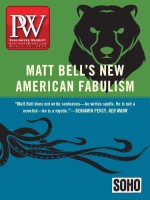I love music but I can’t play it. My brain just can’t get my fingers to go along. Chord progressions? String bending? Hell, I can barely type—I’m strictly a two-finger banger. Why did I write Long Gone Daddies? Because I couldn’t play it on guitar.
Well, that’s one answer. It’s even partly true. But the fact is, I’m not a frustrated musician. I’m an inspired writer—inspired by the songs and singers I love, and by the writers who have that lyrical way with words, who make music on the page. For me, there’s no distinction between Bob Dylan and William Faulkner, Flannery O’Connor and Blind Willie Johnson. Or, while I’m at it, William Shakespeare and the one they called “the Hillbilly Shakespeare,” Hank Williams.
So it seemed like the most natural thing in the world when I sat down to write Long Gone Daddies, a novel about a rock ’n’ roll band on the road to the devil knows where. Turns out, though, I wasn’t in such good company after all. Turns out I was pretty much on my own. Turns out nobody—well, damn near nobody—writes rock ’n’ roll novels.
Think of your favorite music books. Nonfiction, right? Mine all are. They’re memoirs (Dylan’s Chronicles, Keith Richards’s Life) or biographies (Peter Guralnick’s two-volume tale of Elvis, Nick Tosches’s Hellfire) or deep riffs on songs and the ghosts who sang them (Greil Marcus’s Invisible Republic, Stanley Booth’s Rythm Oil).
Why don’t people write rock ’n’ roll novels? Long after I finished mine, I got an answer, of sorts. This was at the Sewanee Writers’ Conference three years ago, when I signed up for a one-on-one meeting with a New York City literary agent. I was nervous, and I knew the odds, but one thing gave me hope: I had a pitch she hadn’t heard before, a book she hadn’t read a hundred times already. I thought, naively, that this was a good thing. Then she asked what my novel was about.
Well, I wanted to say something eloquent but not have it come out sounding pretentious. I wanted to say something like, “It’s the story of three generations of musicians and the guitar they play—or rather, that plays them.” I wanted to say, “It’s a family saga of fathers, sons, and other strangers at the crossroads of fame and reckoning.” I wanted to talk about universal themes, played loud through a busted amp.
Instead, I blurted out, “It’s about a rock ’n’ roll band.”
The words had barely made it out when she said, “Nobody buys rock ’n’ roll novels.” (This, mind you, was the same summer A Visit from the Goon Squad came out.) She seemed aghast, offended. I thought she might come across the table and smack me one for wasting her time, if not my own.
So I had my answer: nobody writes ’em because nobody reads ’em. I know, I know, it sounds like one of those Zen koans you can’t get your brain around. Like, you know, how do you unwrite a book?
So I walked out of my meeting with the New York City literary agent thoroughly demoralized. My big chance at last, and she’d all but said, “Why, you blasted fool, what were you thinking?”
And yet I had hope. It was safe inside my hard head, which was convinced as ever that there was an audience for rock ’n’ roll novels. I saw it all around me when I’d go to a Dylan concert. I saw it in Memphis, where I live—tourists from around the world lining up outside Sun Records to visit the little storefront where Sam Phillips cut those sublime records by the likes of Elvis, Johnny Cash, and Howlin’ Wolf.
But ultimately, it didn’t matter. See, the book wasn’t a product of my hard head. It was one from the heart—and in that regard, it didn’t matter if the thing was ever published. Because that’s my philosophy on all this—my advice on writing, should anyone ask: write the book you’re passionate about, and pay no heed to fashions, trends, or what else is on the shelf or the bestseller list. Write the book only you could write. Write the book you’d love to read.
This is mine. Play it loud.



 Volume 260
Issue 10
03/11/2013
Volume 260
Issue 10
03/11/2013





